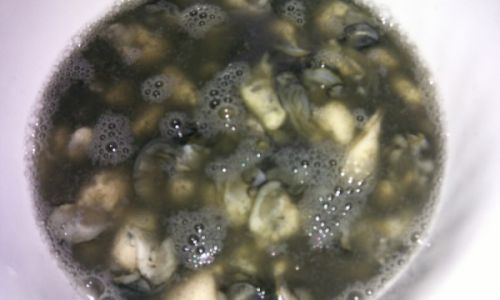Table of content
- Physical Health Factors
- Psychological & Emotional Triggers
- Lifestyle Influences
- Dietary Adjustments: Make Every Bite Count
- Lifestyle Tweaks: Create an Appetite-Friendly Environment
- Mindful Eating: Reconnect With Your Senses
- Social & Emotional Strategies
- Creamy Avocado & Smoked Salmon Toast
- Spiced Roasted Chickpeas
- Berry-Chia Pudding
- Herb-Crusted Salmon With Lemon Butter Sauce
Introduction
Loss of appetite is a common yet often overlooked issue that affects millions worldwide. Whether caused by stress, medical conditions, or lifestyle factors, a dwindling desire to eat can lead to fatigue, weight loss, and a diminished quality of life. The good news? Simple, science-backed strategies can help you reclaim your hunger and enjoy meals again. This article explores actionable steps to revive your appetite, ensuring you never worry about lacking the desire to eat. From dietary tweaks to mindset shifts, we’ll dive into proven methods to make every meal a delight.
Understanding Loss of Appetite: The Silent Disruptor
Loss of appetite, medically termed anorexia, isn’t a disease itself but a symptom of underlying issues. It can stem from physical ailments like infections, chronic illnesses, or medication side effects. Psychological factors such as anxiety, depression, or grief also play a significant role. Even everyday stressors—work deadlines, relationship tensions, or financial worries—can dampen your hunger cues.

The consequences of ignoring this issue are severe. Prolonged poor appetite leads to nutrient deficiencies, muscle loss, and weakened immunity. It creates a vicious cycle: low energy makes it harder to engage in activities, which further reduces motivation to eat. Breaking this cycle requires a multifaceted approach, addressing both the body and mind.
Common Causes of Appetite Loss
Before diving into solutions, it’s crucial to identify potential triggers. Self-awareness is the first step toward recovery.
Physical Health Factors
- Medical Conditions: Thyroid disorders, diabetes, cancer, and gastrointestinal issues like IBS or peptic ulcers often suppress appetite.
- Medications: Antibiotics, antidepressants, and chemotherapy drugs frequently list “loss of appetite” as a side effect.
- Aging: As we age, sensory changes (like reduced taste and smell) and slower metabolism can diminish hunger.
Psychological & Emotional Triggers
- Stress & Anxiety: Cortisol spikes from chronic stress disrupt digestion and appetite regulation.
- Depression: Low mood often correlates with decreased interest in eating.
- Eating Disorders: Conditions like anorexia nervosa involve complex psychological and physical factors.
Lifestyle Influences
- Poor Sleep: Sleep deprivation alters hunger hormones like ghrelin and leptin.
- Dehydration: Mild dehydration can mimic hunger, confusing the body’s signals.
- Sedentary Living: Lack of movement slows metabolism and reduces caloric needs.
Practical Strategies to Revive Your Appetite
Now, let’s explore actionable steps to reignite your desire to eat. These methods are safe, evidence-based, and adaptable to any lifestyle.
Dietary Adjustments: Make Every Bite Count
- Eat Smaller, Frequent Meals: Instead of three large meals, aim for five to six mini-meals. This reduces pressure and prevents overwhelming fullness.
- Prioritize Nutrient-Dense Foods: Focus on calories-per-bite. Include avocados, nuts, olive oil, and full-fat dairy to boost caloric intake without bulk.
- Spice It Up: Herbs and spices like ginger, garlic, and turmeric enhance flavor and stimulate digestive enzymes.
- Stay Hydrated (But Not During Meals): Sip water between meals to avoid feeling bloated. Add lemon or cucumber slices for a refreshing twist.
- Experiment With Textures: Combine crunchy, creamy, and chewy textures to keep meals interesting. Try a crispy salad with creamy dressing or a crunchy granola topping.
Lifestyle Tweaks: Create an Appetite-Friendly Environment
- Exercise Lightly Before Meals: A 15-minute walk or gentle yoga increases blood flow to the digestive system, priming your appetite.
- Optimize Meal Timing: Eat when you’re most alert. For some, this means a hearty breakfast; for others, a late-night snack.
- Reduce Decision Fatigue: Prep meals in advance to eliminate the stress of “what to eat.” Use meal delivery kits for variety.
- Limit Alcohol & Caffeine: These suppress appetite and dehydrate. Opt for herbal teas or infused water instead.
Mindful Eating: Reconnect With Your Senses
- Eat Without Distractions: Turn off screens and savor each bite. This helps you tune into hunger and satiety cues.
- Practice Gratitude: Before meals, acknowledge the effort that went into preparing the food. This mental shift can enhance enjoyment.
- Use Aromatherapy: The scent of citrus, peppermint, or lavender can stimulate appetite. Diffuse essential oils during meals.
Social & Emotional Strategies
- Dine With Others: Eating alone can exacerbate loss of appetite. Join friends or family for meals to make the experience more engaging.
- Address Emotional Barriers: If stress or grief is the root cause, consider therapy or journaling. Cognitive Behavioral Therapy (CBT) is particularly effective.
- Set Realistic Goals: Avoid guilt over missed meals. Celebrate small victories, like finishing half a plate.
Appetite-Boosting Recipes & Meal Ideas
Still stuck on what to eat? Try these simple, flavorful recipes designed to tempt your taste buds.

Creamy Avocado & Smoked Salmon Toast
- Ingredients: Whole-grain bread, avocado, smoked salmon, lemon juice, red pepper flakes.
- Instructions: Mash avocado on toast, top with salmon, a squeeze of lemon, and a pinch of spice. Rich in healthy fats and protein.
Spiced Roasted Chickpeas
- Ingredients: Canned chickpeas, olive oil, paprika, cumin, garlic powder.
- Instructions: Roast until crispy. A crunchy, savory snack packed with fiber and plant-based protein.
Berry-Chia Pudding
- Ingredients: Chia seeds, almond milk, honey, mixed berries.
- Instructions: Soak chia seeds overnight, top with berries. A refreshing, nutrient-dense breakfast or dessert.
Herb-Crusted Salmon With Lemon Butter Sauce
- Ingredients: Salmon fillet, fresh dill, parsley, lemon, butter.
- Instructions: Bake salmon with herbs, drizzle with lemon butter. Omega-3s and zesty flavors to stimulate appetite.
When to Seek Medical Help
While lifestyle changes often suffice, persistent appetite loss warrants professional evaluation. Consult a doctor if:
- You lose 5%+ of your body weight unintentionally in a month.
- Appetite loss accompanies severe abdominal pain, vomiting, or jaundice.
- You struggle with swallowing or have difficulty keeping food down.
- Mental health symptoms like prolonged sadness or hopelessness coexist.
Conclusion: Embrace the Joy of Eating
Loss of appetite doesn’t have to control your life. By combining dietary creativity, mindful habits, and emotional awareness, you can transform meals from chores into celebrations. Remember, food is fuel—and pleasure. Start small, stay consistent, and celebrate every step toward a healthier, hungrier you.
Final Tip: Keep a food and mood journal to track patterns. Note how different foods, activities, and environments affect your appetite. Over time, you’ll uncover personalized solutions to make every bite count.
Word Count: 2,010

This article equips you with the tools to tackle loss of appetite head-on. By integrating these strategies, you’ll not only regain your hunger but also cultivate a deeper appreciation for the nourishment and joy food brings. Bon appétit!




0 comments